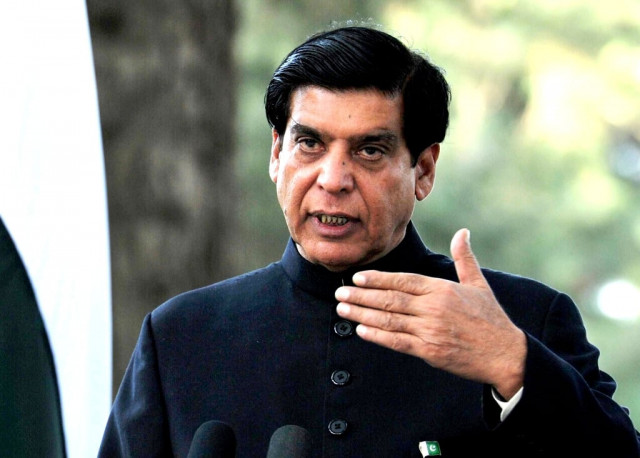Rs47 billion case: Attorneys argue over discretionary funds
Amicus curiae says if funds given out on personal consideration, it’s a violation of PM’s oath.

Photo file of Prime Minister Raja Pervaiz Ashraf. PHOTO: AFP
The Supreme Court was told on Thursday that former Prime Minister Raja Pervaiz Ashraf’s action of assigning out Rs47 billion among his favourites could be termed a violation of his oath.
Khawaja Haris appearing as amicus curiae before a three-judge SC bench argued that if the distribution of public funds was made on personal considerations, it would be considered a violation of the oath.
The bench headed by Chief Justice Iftikhar Muhammad Chaudhry, comprised Justice Jawwad S Khawaja and Justice Sheikh Azmat Saeed who heard a suo motu case regarding utilisation of huge funds by the ex-PM for development allegedly without following any criteria.
Advocate Haris further contended that despite the approval of the National Assembly, the constitution does not provide discretionary funds to the prime minister.

He said that public money could not be utilised for the benefit of any particular person and individual.
During the hearing, the chief justice remarked that development funds should be spent on voters who elect the MNAs and MPAs. “If the voters would be satisfied then there will be good governance in the country,” added the chief justice.
The court noted that Raja Pervaiz Asharf was not designated chief executive of the country so that he could aid his close associates in a non-transparent manner. The chief justice added that Rs6.5 billion were given to notables, who were neither members of parliament nor provincial assemblies.
Wasim Sajjad, counsel for ex-PM Raja Pervaiz Ashraf, argued that any expenditure approved by National Assembly in any form whatsoever could be legitimate expenditure under the constitution.
Sajjad added, “It was within the power of the National Assembly to decide whether expenditure is allowed specifically or as a block grant and the constitution provides and controls monitoring of expenditure through monitory authority and Public Accounts Committee of the National Assembly.”
He further said that the parliament had administered authority to the prime minister to spend the block grants and its utilisation on his authorisation.
Iftikhar Gilani, counsel for the petitioner in Balochistan development case, said the parliamentarians have to show that they require funds for certain development project in their areas.
The case was adjourned till 22nd July.
Published in The Express Tribune, July 19th, 2013.



















COMMENTS
Comments are moderated and generally will be posted if they are on-topic and not abusive.
For more information, please see our Comments FAQ